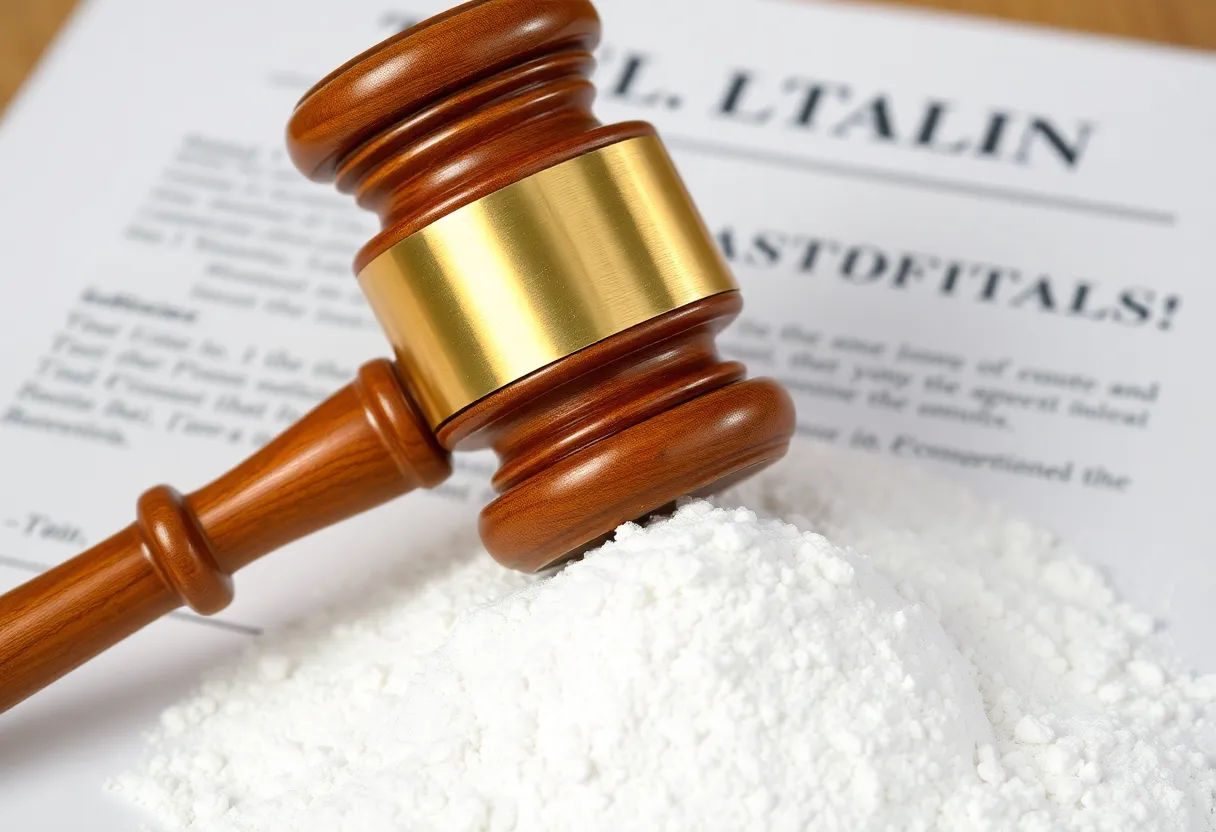News Summary
Susan Soares files suit alleging asbestos in cosmetic products led to her mesothelioma diagnosis, raising safety concerns for consumers.
New Lawsuit Exposes Asbestos Risk in Popular Cosmetics
In an alarming turn of events, Susan Soares has filed a groundbreaking product liability suit in Rhode Island, asserting that her long-term use of cosmetic products containing asbestos-containing talc has directly led to her diagnosis of malignant pleural mesothelioma. The case, titled Soares, et al. v. Avon Products Inc., et al., highlights critical concerns surrounding the safety of cosmetic products that have been a staple in many households.
Diagnosed with this rare and aggressive form of cancer in October 2023, Soares claims that for over 50 years—dating back to 1966—she used various talc-based products, leading to the inhalation of dangerous asbestos fibers. The products in question include cosmetics from well-known manufacturers, raising questions about their accountability in safeguarding consumer health.
Judicial Proceedings and Defendants’ Claims
As the case progressed in Providence Superior Court, several defendants, including major cosmetic firms, sought to dismiss the charges, arguing that they had insufficient contacts with the state of Rhode Island to establish personal jurisdiction over them. However, the judge, Alice B. Gibney, carefully examined these claims and ultimately upheld the importance of holding manufacturers accountable.
During the jurisdictional analysis, it became evident that most defendants merely placed their products in the stream of commerce without any significant engagement in the Rhode Island market. This lack of interaction led to the dismissal of five defendants, including Intercos America and Sumitomo Corp., as they could not demonstrate adequate contact with the state to warrant the case proceeding against them.
IMI Fabi: A Notable Exception
Despite the dismissals, one defendant, IMI Fabi, distinguished itself by possessing sufficient contacts with Rhode Island through a distribution agreement. This contract indicated a clear intention to serve the Rhode Island market, and Soares’s legal team effectively linked the company to the state through evidence of a specific distribution contract with Cosmetic Specialty that mentioned Rhode Island.
Judge Gibney emphasized that jurisdiction is determined by the defendants’ conduct targeting the state, rather than by the expectations of the plaintiffs. The ruling emphasized that potential jurisdictional discovery could still be warranted regarding subsidiaries of IMI Fabi, such as Fabi Diana and Fabi USA.
The Path Forward
Soares’s suit not only sheds light on the potential health risks associated with cosmetic talc but also reinforces the legal responsibilities of manufacturers to ensure product safety. The ruling paves the way for Soares and her legal counsel to continue pursuing claims against IMI Fabi, potentially leading to greater accountability for the entire industry.
As cosmetic products containing talc remain popular among consumers, this case highlights an urgent need for increased scrutiny and regulation concerning their safety. Given the relatively unknown risks associated with talc-based cosmetics, the implications of this case may extend beyond Rhode Island, affecting consumers and manufacturers nationwide.
With the court’s recent ruling announced in a comprehensive 17-page document, the legal community is watching closely. It remains to be seen how this case will unfold as it challenges the intersection of consumer safety, corporate responsibility, and legal jurisdiction.
As the lawsuit progresses, the findings may significantly influence public perceptions and future regulations on the use of talc in cosmetics, putting the spotlight on manufacturers to prioritize consumer safety over profit.
Deeper Dive: News & Info About This Topic
HERE Resources
Old Sawmill Engulfed in Flames: Asbestos Threat Detected
Kite Packaging Launches Vital Asbestos Disposal Solution in the UK
Major Renovations at the Pompidou Centre: Asbestos Removal Initiated
The Shocking Assassination of UnitedHealthcare CEO Brian Thompson: An Unfolding Drama
Stay Safe: The Rising Importance of Online Asbestos Training
Shocking Revelations on King’s Men Talc Powder: Hidden Dangers
Exciting Transformations Ahead at the Pompidou Centre!
The Pompidou Centre’s Grand Makeover: A Transformational Renovation in the Heart of Paris
Asbestos Discovery Delays City Hall and Police Department Renovations in Charles City
J&J Faces Legal Firestorm Over Talcum Powder Cancer Claims
Additional Resources
- R.I. Lawyers Weekly: Talc Company Subject to R.I. Jurisdiction in Mesothelioma Case
- Wikipedia: Talc
- Asbestos.com: Jury Awards $15M in Talc Product Liability Case
- Google Search: Asbestos Talc Cosmetics
- Drugwatch: How Much Each State Will Get from J&J Talc Settlement
- Encyclopedia Britannica: Asbestos
- USA Today: J&J Baby Powder Settlement
- Google News: Talc Lawsuit



















